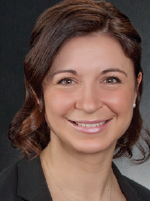MASCC/ISOO Conference Highlights
People who are less engaged in their own medical care have more negative health consequences, including higher readmission rates, poor care coordination, and less confidence. Read More ›
Patients can be taught via neurofeedback to modify their brainwave activity and decrease the sensations of chemotherapy-induced peripheral neuropathy. Read More ›
San Francisco, CA—Adolescent and young adult (AYA) patients with cancer consistently indicate the need for better communication from their oncology providers on matters concerning sexual health. Despite misconceptions that the topic may embarrass them or fall on deaf ears, surveys show that AYAs actually want to talk to their providers about topics such as dating, safe sex practices during treatment, contraception, body image, sexuality, fertility, and psychosexual adjustment. Read More ›
San Francisco, CA—The human papillomavirus (HPV) has changed the field of head and neck cancer, and HPV now causes a growing majority (70%-90%) of oropharyngeal squamous-cell carcinomas. As its incidence is rising in the United States, so is patient curiosity about what sets this cancer apart from other malignancies. Read More ›



